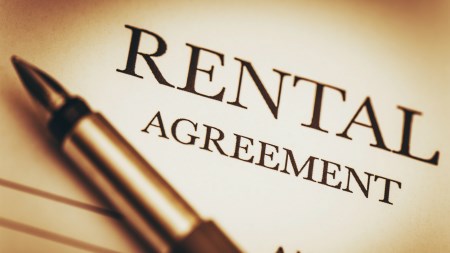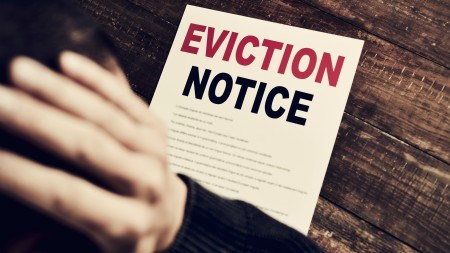For tenants, a 2-month rental deposit may seem steep, but for many landlords, it just makes business sense.
Picture this - You’ve found new tenants for your rental home. A couple whose credit reports look good. They seem like nice people who will be stable enough to keep up with their rent and will look after the property. You both go ahead and sign the lease agreement and they move in. A few months down the line, things go awry (perhaps they get divorced, or one of them loses their job), and your tenants begin defaulting on their rent payments. Eventually, you ask your tenants to leave, however, they dig in their heels and refuse to comply with your request.
Your next step is to begin the eviction process. According to Belinda Lewis, Property Law Director at STBB Smith Tabata Buchanan Boyes Attorneys, evictions can take up to 10 weeks and, if unopposed, will cost between R6000 and R8000 in legal fees. This is a huge inconvenience and a costly affair for a landlord.
Now, remember, during this period you will often not receive any rental income from your tenants, yet you will have to continue paying for utilities and potentially a bond. If you had charged your tenants a 2-month rental deposit at the start, this could be used for all the costs. According to Marlon Shevelew of rental property firm Marlon Shevelew and Associates, “The landlord as at the time of eviction would have already cancelled the lease and the occupant is holding over unlawfully. Accordingly, the deposit held in terms of a lease is no longer the self-same deposit and can be allocated for expenses that the landlord is liable for so long as it related to the property previously lawfully occupied by the occupier.”
According to the Tenant Profile Network Rental Monitor for Q3 2016, roughly 16% of tenants are in arrears on their rental payments. That’s a growing number of tenants out there who can’t pay their rent! This points to the fact that you, as a landlord, should consider a deposit as something more than just to cover damages, but to potentially tide you over in months where tenants are defaulting. Suddenly, a higher deposit isn’t looking too bad, is it? Since you can never be sure what will happen with your tenants, as reliable as they may seem, protecting yourself by charging a sufficient rental deposit will go a long way to ensuring that you don’t end up in a sticky financial situation.
Grant Rea, RE/MAX Living Specialist, reinforces this sentiment by saying that “Generally anything less than two months’ security deposit leaves the landlord at risk of financial loss in the event that their tenant defaults on their last month’s rent or leaves the property with extensive and costly repairs.”
Using a deposit as rent
Often, when you charge a higher rental deposit, tenants will try to use this deposit as the last two month’s rent. It’s a problem for many tenants, as they need to pay for the deposit on a new property before they leave their current one and have received their current deposit back. However, the Tenant Profile Network states that tenants have an obligation to pay the proper amount of rent at the proper place and time, and are not allowed to use the deposit as rent. If they fail to pay the last month's rent they are committing a breach of lease and the landlord is entitled to take the necessary legal action, including blacklisting the tenant.
Therefore, charging a higher deposit does not give tenants a right to use this as rent for the last two months, even if the property has been kept in pristine condition and the tenants have paid their rent every other month.
How to invest a deposit correctly
According to the Rental Housing Act:
If the landlord holds the deposit, he / she must invest the deposit in an interest bearing account with a minimum rate of interest applicable to a savings account. This is a legal obligation for landlords. Tenant are entitled to request written proof of the interest earned and if requested, the landlord is obliged to provide such proof.
In other words, make sure that you invest the deposit in an interest-bearing account with a reputable financial institution. Ensure that the rate of interest is not less than the interest rate on a savings account. It’s a good idea to let your tenant know what type of account this is, and what kind of interest the money will be earning.
Having to pay a 2-month rental deposit plus 1 month of rent is a lot to ask of a tenant, but it may make the most sense from a landlord’s perspective. However, bear in mind that you may or may not actually secure such a deposit as some tenants cannot afford to pay this much money upfront. Remember, a rental deposit is not a legal requirement, so whether you choose to go with a 2-month deposit or not, make sure that you include the amount in the lease agreement to make sure that you and your tenants are on the same page.
This article features some content that originally appeared on HomeTimes.



